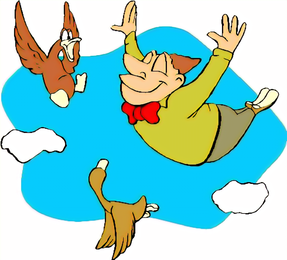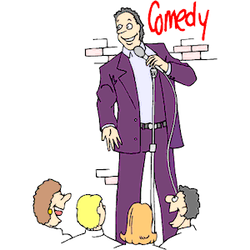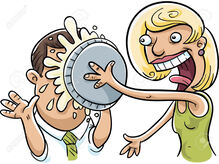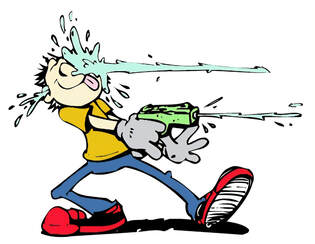|
For the next few weeks we are featuring blogs by guest bloggers on a wide range of subjects related to reading and writing. All the opinions expressed are those of the blogger and are not endorsed by Selfishgenie Publishing. Enjoy!  The circus is in town and a wizened little man goes into the big top during rehearsals and approaches the ringmaster. “I’ve got an act and I want to join the circus.” “Ok” says the ring master. “Show me what you’ve got.” So the man goes into the ring and climbs the tent pole all the way to the top. When he gets there he lets go and stretches out his arms and starts to flap them. He then proceeds to fly round the inside of the big top, doing loop the loops and barrel rolls, swooping and soaring, all the time flapping his arms for all he’s worth. After five minutes he settles gently onto the ground in front of the ringmaster once more. “What do you think?” The little man asks. “Is that it? You do bird impressions?” Boom boom. My apologies to the long running TV series M*A*S*H for stealing that joke. But did you laugh at it? If nothing else, it does show you how up to date my TV viewing is these days.  The reason I ask is that comedy in the written word is very hard to do. What one person finds amusing will pass over another person’s head and may be misinterpreted completely. Stand-up comedians spend hours practicing in front of test audiences above pubs and in tiny comedy clubs making sure their material works before they unleash it on their target audience, whether it is in a larger comedy club, at The Edinburgh Fringe or in the 02 arena. A writer doesn’t have that luxury. If he gets it wrong then it could cost him his audience forever. It’s a one-shot deal. The writer may have an editor that may question the suitability of a joke, its comic value, its relevance to the plot and so on. What appeared hilarious when being written in the solitude of the author’s kitchen may fall as flat as a pancake when it reaches the editor’s desk. So what does the writer do? Do they trust to their instinct and go for the laughs, or do they play safe and keep the story serious? Is there room for both?  Another problem is that it’s tough to sustain comedy over a long period. A stage comedian works at a rate of two or three laughs a minute. Story telling comedians may string a joke out for three or four minutes before getting to the punchline. So how many jokes does the writer need to put into a story to give it that humorous feel? Is it one per page? One every thousand words? One per chapter? Let’s say it’s the latter. My books generally run out at about 25 chapters. Some have more and some less. At the rate of one significant joke per chapter the sums are easy enough. 25 jokes for a stand-up comedian, therefore, is about ten minutes worth of material. Perhaps half the duration of a comedy club slot. That’s a lot of jokes and every one of them has to hit the mark. Of course, not all the humour in a book has to be in the form of joke. Some of it can be situational. The writer gets a lot of leeway in this area, painting pictures of absurd characters or giving them funny things to do or say. The writer can make his characters do silly things. He can make them stupid to the point of imbecility. He can make them accident prone. He can make them pompous or self-important. But he still has to maintain the humour for over 80,000 words (that’s about the acceptable minimum length for a novel these days). That’s a lot of jokes to have to write. Name one well known writer who is noted mainly for the humour in his novels. Difficult, isn’t it? There are plenty who write short pieces for newspapers and magazines. The now defunct Punch magazine was known for them. But ask them to extend that to a full-blown novel and you would start to see the panic in their eyes.  There have been some, of course. Terry Pratchett managed to achieve this in many of his works, but not all of them by any means. The late Keith Waterhouse wrote Billy Liar and I’ve already mentioned M*A*S*H, which made three outings as books for Richard Hooker (real name H. Richard Hornberger). Twelve others in the franchise were ghost written by William E Butterworth and were less critically acclaimed because of it. But when we talk about humorous writing we are often talking about satirical works or parodies, rather than books that are intended solely to be funny. I’ve read a few books recently which, according to their “blurbs” on Amazon, were laugh a minute works. I have to say that they generally failed to make me laugh. The jokes often descended into slapstick and that is a visual media, or it became very juvenile in nature, which is not the sort of comedy that will appeal to an adult reader. More often the jokes were non-existent. So, as someone who likes to introduce a lighter note into my books, that makes me a little bit nervous. What if my readers don’t get the jokes?  I’ve hedged my bets a bit by not claiming that my books are funny. That way at least I’ll be managing expectations. But that is a double-edged sword. A lot of the time we laugh at jokes because we know they’re jokes and we’re waiting for the punch line. If they were told in a more serious tone of voice with no comedic preamble, would we automatically laugh? Maybe, but maybe not. Like most people I have preferences when it comes to comedy. I laugh at some comedians more readily than I will laugh at others. We all know that humour is a very personal thing, as evidenced by the joke I started with. Some people will have laughed and others won’t. That makes life difficult for an author, because they need to appeal to their entire readership, not just to the few people who will understand their humour. So, humour in a novel is fraught with difficulty, for both the writer and the reader. All I can say is that if you find yourself laughing at my books then the jokes were intended. If you don’t laugh then the book is a serious work of fiction and therefore not the place for me to start telling jokes. Either way I hope you enjoy them. Would you like to be a guest blogger for Selfishgenie? Just email us with your idea for a blog. The address is on our "Contact" page. Did you enjoy this blog, or find it interesting? To be sure of not missing an edition, just sign up to our newsletter. We'll even send you a free eBook for doing it. Just click the button below.
0 Comments
Leave a Reply. |
AuthorThis blog is compiled and curated by the Selfishgenie publishing team. Archives
March 2025
|
 RSS Feed
RSS Feed